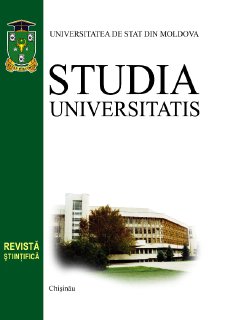ВЛИЯНИЕ ХИМИЧЕСКОГО СОСТАВА ПОВЕРХНОСТНЫХ ВОД НА ИНТЕНСИВНОСТЬ ФОТОЛИЗА ГЛУТАТИОНА
Владислав БЛОНСКИ, Виорика ГЛАДКИ, Максим ЧИСТЯКОВ Молдавский государственный университет
Abstract
THE INFLUENCE OF THE CHEMICAL COMPOSITION OF SURFACE WATERS ON THE INTENSITY OF GLUTATHIONE PHOTOLYSIS The influence of transition metal ions (Cu(II) and Fe(III)) and water mineralization on the intensity of glutathione photochemical transformations on model systems was studied. It was established that the presence of Cu(II) ions contributes to the increase of the thiol photolysis rate by 3.8 times (kf=(3,90±0,10)·10-4s-1 ), and the presence of Fe(III ) 8.5 times (kf=(3,32±0,09)·10-4s-1 ) compared to non-irradiated catalytic systems, where in the system with Cu(II) ions the photolysis intensity is kr=(1,02±0,07)·10-4s-1 and, respectively, kr=(0,39±0,06)·10-4s-1 , for the system with Fe(III) ions. It was established that the mineralization of waters, conditioned by HCO3- ions, contributes to the substantial increase in the photolysis rate of glutathione (kf=(1,14±0,02)·10-3s-1). It was established that the macrocomponents of water, expressed by HCO3- ions, at basic pH values, contribute to the inhibition of the formation of free radicals, with the generation of other forms with a lower activity, among which the radical CO3.-. Keywords: photolysis, thiol, glutathione, mercaptide, mineralization, self-purification, natural waters.


